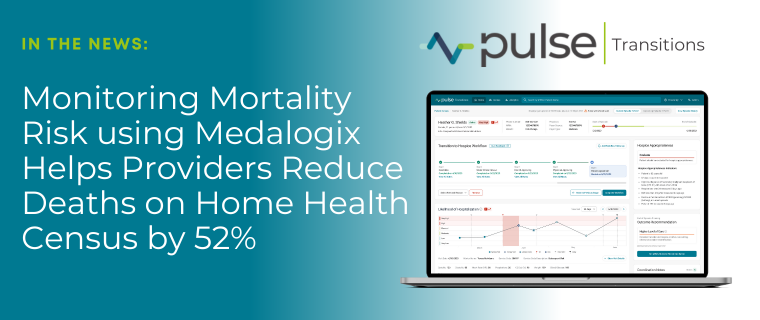Becker's: Predictive Analytics Is The 4th Dimension
Dan Hogan, our CEO, gives his thoughts on how analytics in healthcare adds a beneficial 4th dimension to proactive healthcare decisions inBecker’s Health IT & CEO Review.
Read on below, orclick here.
Health IT Tip of the day: How to add a 4th dimension of decision-making to the clinical process
Round out clinician instinct, experience and education with analytics.
Dan Hogan, founder and CEO ofMedalogixin Nashville, Tenn.:Just recently, Medicare announced its upcoming reimbursement for physicians and their end-of-life planning conversations. Predictive analytics can help ensure these conversations are happening with the right patients at the optimal time. This is just one example of how analytics can help assist in healthcare decisions. Analytics are invaluable because they add a fourth dimension of decision-making.
For example, a clinician, armed with his or her experience, instinct and education (three dimensions), can detect when a patient is nearing the final few days of his or her life. It’s much more difficult for these three levels of decision making to help inform when a patient is going to pass away within 180 days — the full extent of the hospice benefit. Analytics adds a fourth dimension, which can predict an outcome 180 days away. This extra time to discuss all options makes all the difference — for the clinician, the patient and the patient’s family.
Originally published by Max Green atBecker’s Health IT & CEO Review
Related Blogs

Pulse Episodes sees rapid growth, now supports over 25% of US Home Health Average Daily Census
[Nashville, January 2, 2025] Medalogix, the leading data science and cli...

How Hospice Agencies Can Leverage Technology to Flourish Under New CMS Hospice Requirements
Summary: Hospice agencies face consistent headwinds, among them...

Monitoring Mortality Risk using Medalogix Helps Providers Reduce Death on Home Health Census by 52%
NASHVILLE, Tenn., November 22, 2024 -- Medalogix, the leading machine le...


